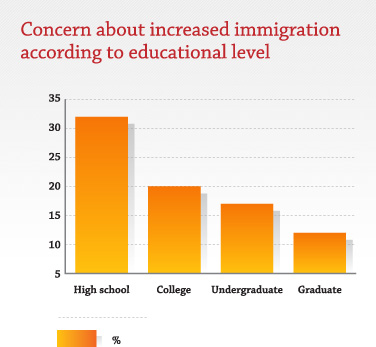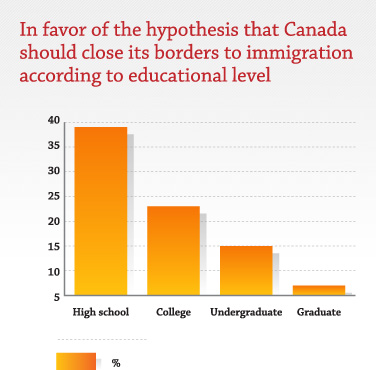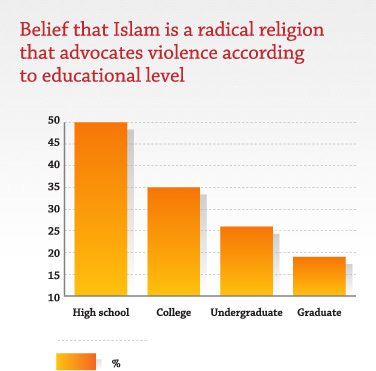Quebeckers and immigration: the latest details!
Quebeckers and Immigration: The Latest Details
This has been a hot topic for nearly a month in Québec. The RHIincreasingly a social watchdogaims at clarifying the situation somewhat and, in particular, giving the latest details about Quebeckers' attitude towards the immigration phenomenon.
To begin with, the growth in immigration is a real concern for only 20% of the population, whereas 34% claims to be moderately concerned. This concern ranks eighth out of the 12 submitted, following close behind the role that the media play in our society.
The striking aspect of the collected data is the very high correlation between openness towards immigration and respondent level of education. The gaps range from single to more than triple between people with a high-school diploma versus those with a master's degree.
The gaps are even wider when respondents are asked if they would support Canada closing its borders to immigration. While 22% of respondents taken as a whole responded favorably to this possibility, the proportion climbed to 39% for high-school graduates, yet dropped to 7% among people with a master's degree.
There is also a split on the question between people coming from urban areas and those from rural settings: 20% in favor for the former and 28% for the latter. It should be noted that a large proportion of people (23%) stated that they were undecided about this hypothetical measure.
Age is likewise a factor that influences people's perceptions; concern about immigration is directly proportional to age.
Concerns about Racial Tensions Remain
It's a sign of the times that racial tensions ranked fifth among the 12 issues identified; 32% of respondents stated that they were highly concerned and 47% moderately so. While rural people aren't exposed to these situations, 27% of them indicated that they were highly concerned about racial tensions.
Proof that Islam doesn't have a good reputation comes in the form of 33% of Quebeckers stating that they consider it to be a radical religion that advocates violence. The number rises to 38% among individuals from rural areas.
Once again, this perception varies greatly depending on educational level, running from 50% for high-school graduates to 19% for respondents with a master's degree. Age is somewhat similar, with the youngest segment of the population displaying much more openness to this religion than their elders.
But Where Does Happiness Fit into All That?
Happiness appears strongest among people who are much more open-minded. On the topic of immigration, it's almost as if a more conservative and closed attitude has a negative impact on the propensity for happiness.
RHI of those who are strongly concerned about increased immigration 72.50
RHI of those who are moderately concerned by this increase 75.10
RHI of those who are in favor of Canada closing its doors to immigration 72.70
RHI of those who are against this hypothetical measure 75.90
RHI of those who believe that Islam is a radical religion that advocates violence 73.30
RHI of those who do not share this outlook 74.70














